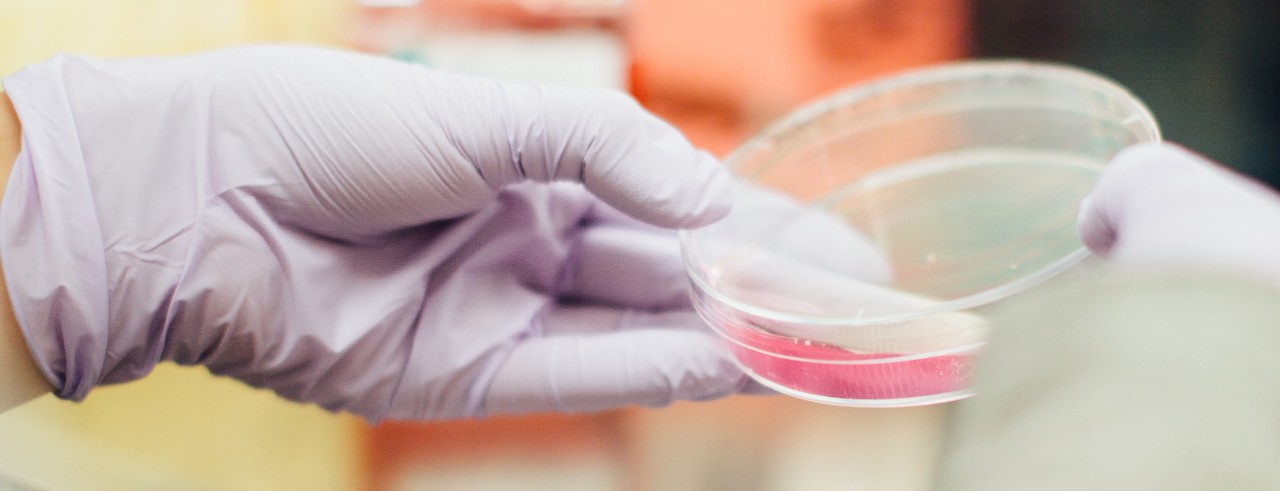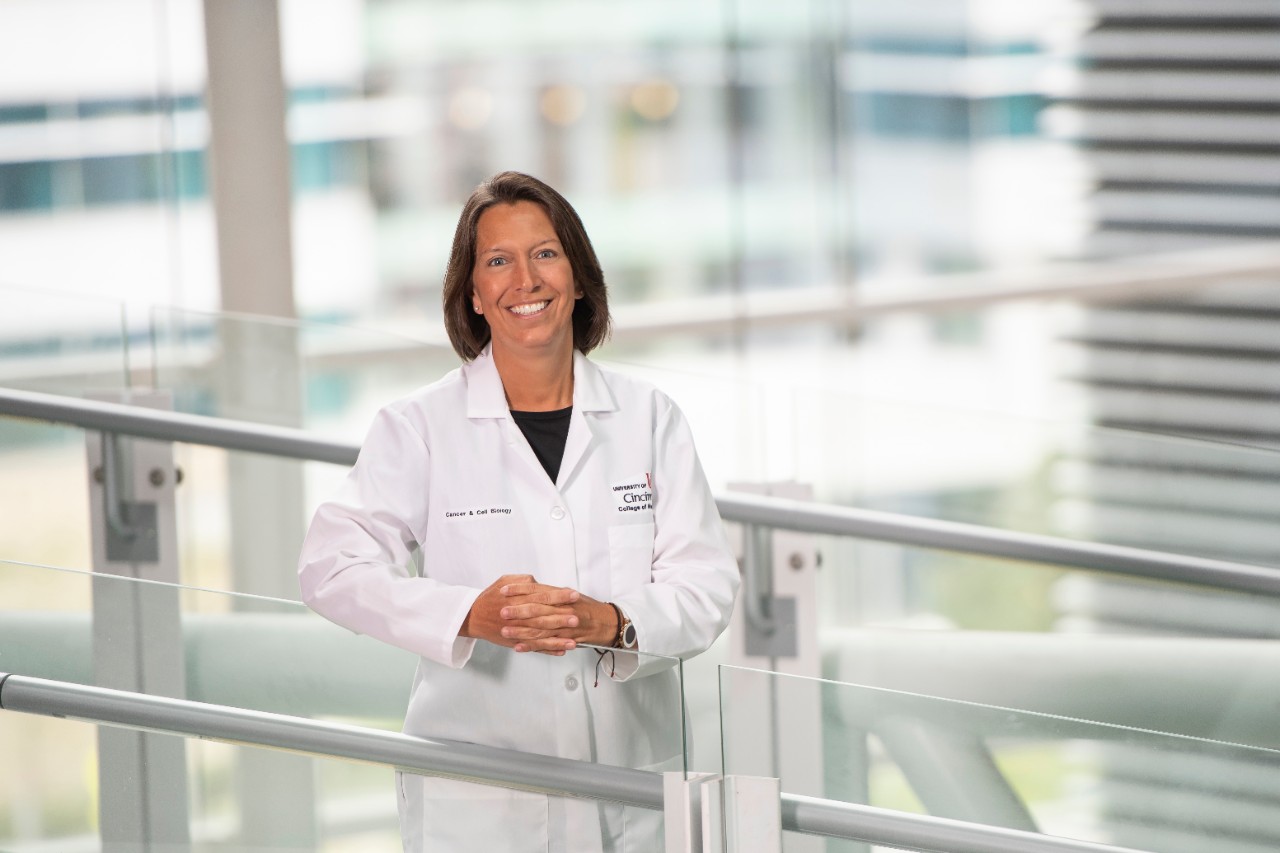
UC researchers study processes that cause breast cancer recurrence, spread
National Cancer Institute grant allows researchers to look at targeted treatments for breast cancer
One in eight women will be diagnosed with breast cancer in their lifetimes. Recurrence and spread are the biggest contributors to the death of these women.
That’s why Susan Waltz, professor in the UC department of cancer biology, is teaming up with other researchers at UC, Cincinnati Children’s Hospital Medical Center and the University of Kentucky to study the processes that cause these events to occur — and ways to both target and stop them.
The National Cancer Institute recently awarded this collaborative team a $500,000 yearly grant for the next five years to do just that.

Susan Waltz, professor in the UC department of cancer biology. Photo credit: Colleen Kelley/UC Creative + Brand
“The focus of this grant is understanding why some breast cancers come back after initial treatment and metastasize and others don’t,” says Waltz, the principal investigator on the study. “We identified two genes (RON and DEK) which are both found in human breast cancers. When both of these genes combined are seen in breast cancers, they are highly predictive of the cancers recurring and spreading.”
She says the teams are trying to uncover reasons these genes make breast cancer so aggressive and discover whether or not this knowledge can be used to predict which tumors are more likely to come back.
“We hope this will help us identify new vulnerabilities in these cancers — an Achilles’ heel, if you will — that can be used for the treatment of these aggressive cancers,” she says. “Our new data suggest that these genes rewire breast cancer cells to support unique energy needs of the cells by increasing cholesterol and glucose use required for tumors to grow and spread.
“In this study, we hope to map, at high resolution at the atomic level, the unique energy network driven by these two genes, with the goal of using this information to identify key nutrients that might both predict and be used to block breast cancers from coming back or metastasizing,” Waltz added.
“This could provide new ways to identify and treat potentially aggressive breast cancers at early stages, increasing survival and improving lives.”
Featured photo courtesy of Drew Hays/Unsplash
Next Lives Here
The University of Cincinnati is classified as a Research 1 institution by the Carnegie Commission and is ranked in the National Science Foundation's Top-35 public research universities. UC's graduate students and faculty investigate problems and innovate solutions with real-world impact. Next Lives Here.
Related Stories
New effort aims to keep unsold clothing donations out of the...
November 13, 2024
WVXU hosts leadership from Ohio Valley Goodwill Industries and UC fashion design student Wesley Beisel to speak to how donated items contribute to sustainable living. Beisel is the student lead of the Sustainable Fashion Initiative (SSI) which originated at UC.
The long and complicated — and expensive — effort to replace...
November 13, 2024
Cincinnati's public water utility is on a years-long effort to replace its lead service lines, guided by a model designed by Christopher Auffrey, a professor of planning at DAAP. The EPA has just ramped up the deadline for replacements across the U.S. and professor and city officials discussed the undertaking on NPR's "All Things Considered."
Could body roundness index replace BMI?
November 13, 2024
For decades, body mass index, or BMI, has been a widely used medical screening tool. But experts from the American Medical Association have pointed out some of the metric’s shortcomings. Now a recent paper published in JAMA Network Open reported that the body roundness index, or BRI, shows promise as a better predictor of mortality in adults.
